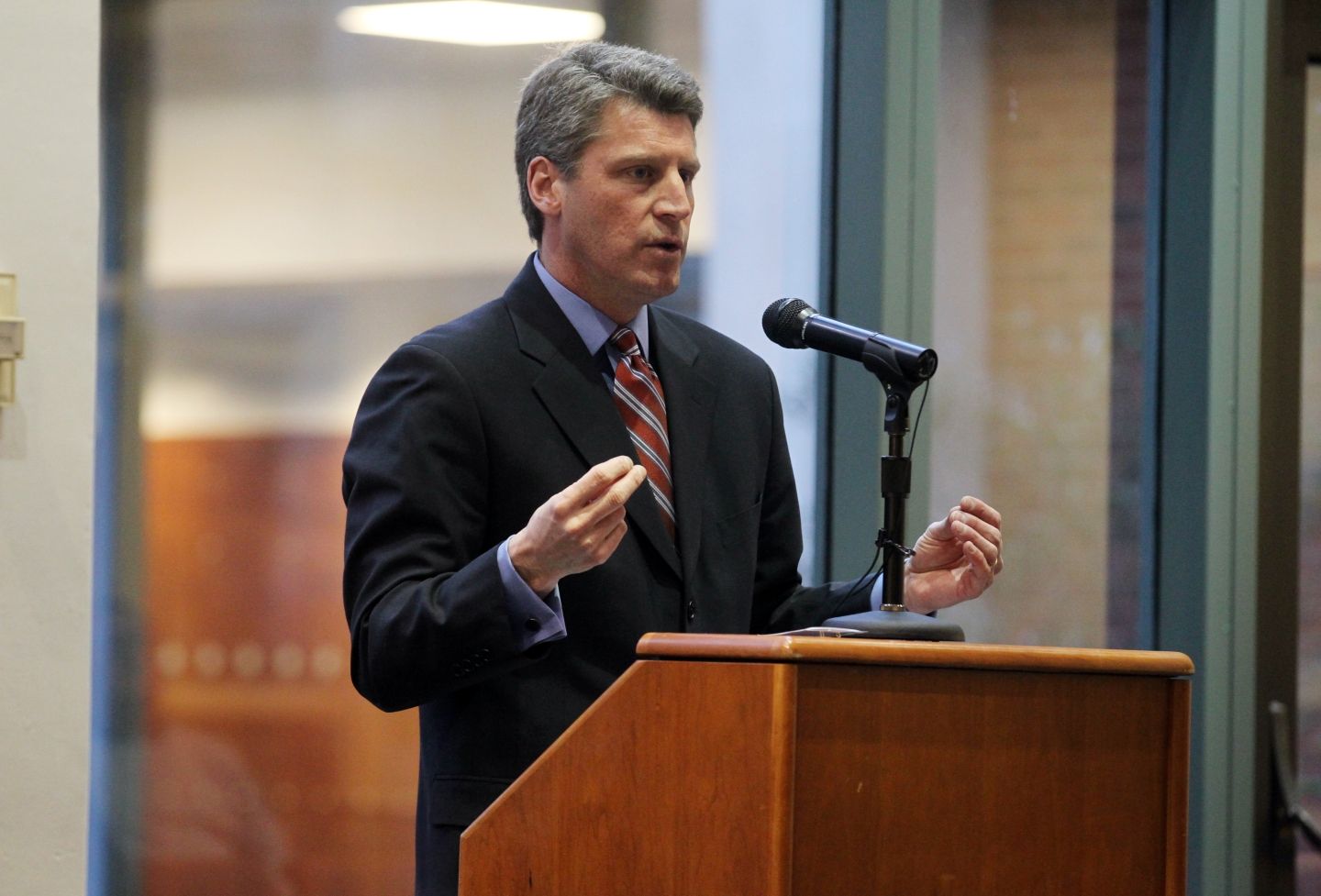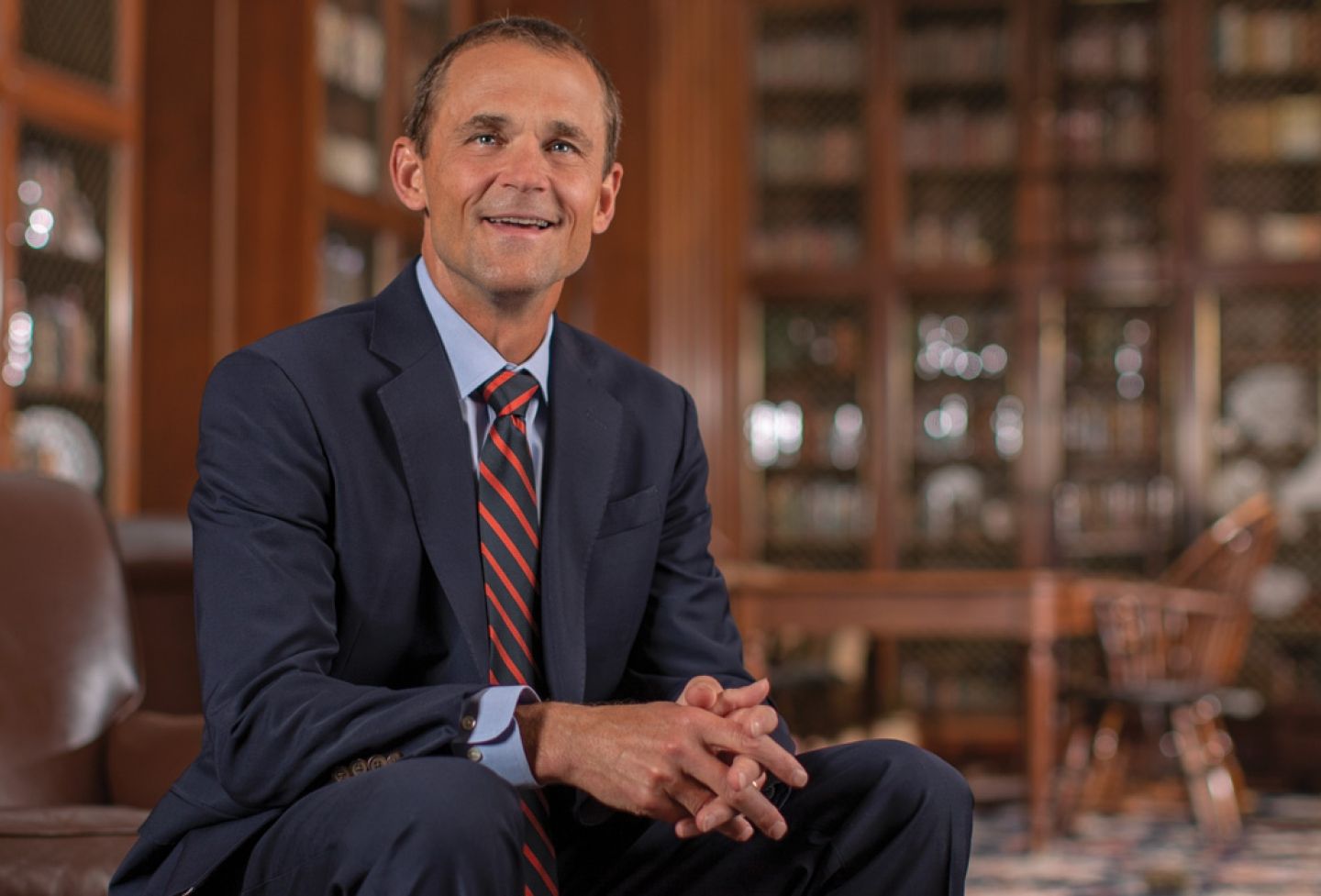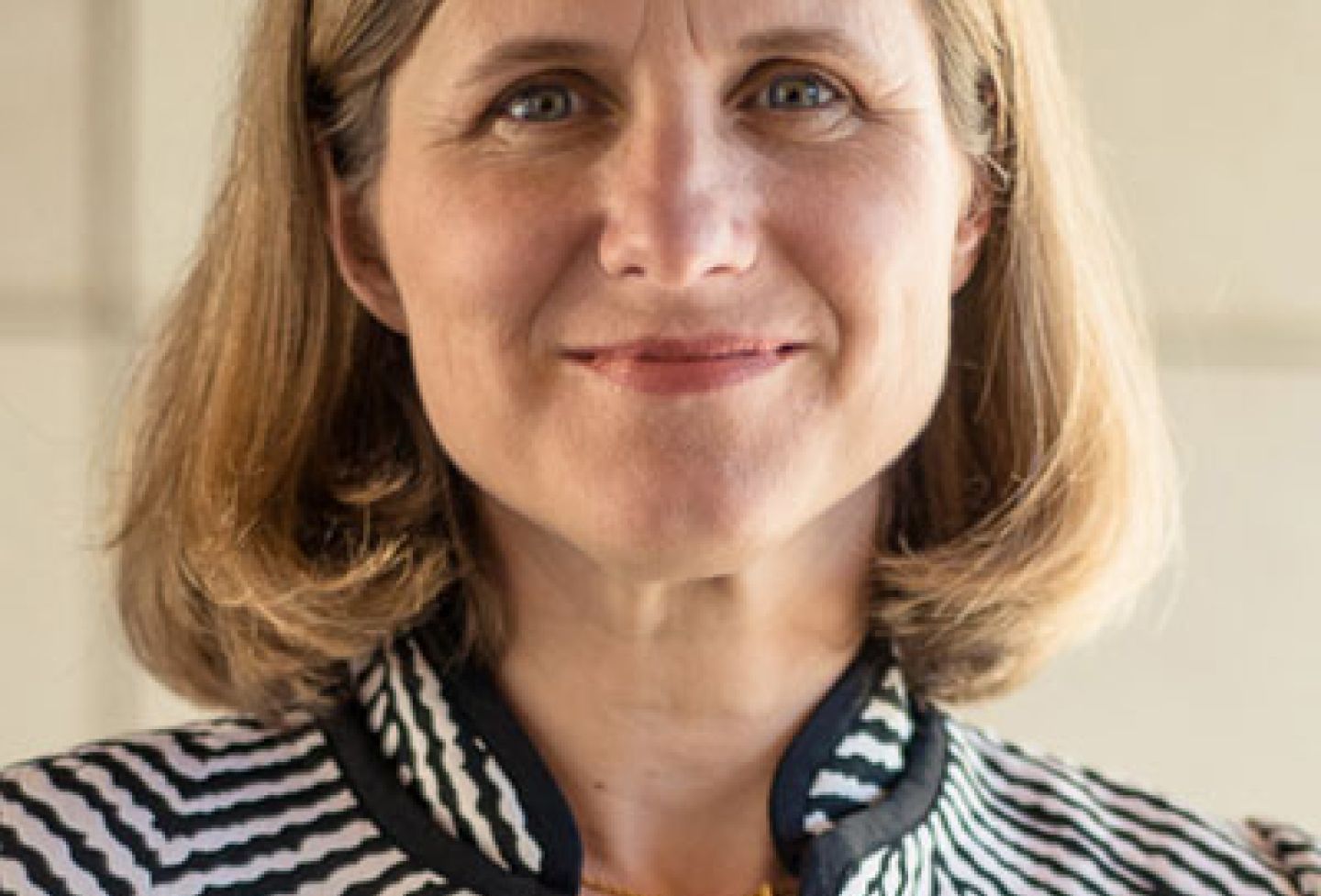For the first time since she graduated from the law school four decades ago, Gloria Cordes Larson ’77 will not have a full-time job this fall. For the time being, at least, that suits her fine. Larson, who recently stepped down as president of Bentley University in Waltham, Massachusetts, after 11 years, is happily splitting her time between family homes on Cape Cod and in Charleston, South Carolina. Other than spending time with her husband, Allen, and their three rambunctious Labrador retrievers, she said her immediate plans are “unpacking the boxes that are in front of me!”
Life actually is a little busier than that; Larson will also spend time this coming academic year as president-in-residence at the Harvard Graduate School of Education, a part-time post. “It’s a great opportunity to share my experiences,” she said, “because I was such a nontraditional president.”
Indeed, Larson did not take the usual route to the top in academia. She worked at the Federal Trade Commission; was Massachusetts secretary of consumer affairs and business regulation, and then secretary of economic affairs under Gov. William Weld; practiced law and co-chaired the Government Strategies Group at Boston-based Foley Hoag; and led the business advisory cabinet for Massachusetts Gov. Deval Patrick, before becoming Bentley’s president in 2007.
Larson credited millennials — people born generally between the early 1980s and late 1990s — for her decision to pursue a college presidency. The story began on a recruiting trip to UVA while she was at Foley Hoag. In returning to her alma mater, where she had been socially conscious and helped found Virginia Law Women, she was struck by millennials’ commitment to what she calls “the triple bottom line”: planet, people and profit.
“I found that they were the first generation that talked as much about the Peace Corps and Teach For America as they did about entering life with a big law firm,” she said.
When the Bentley job became available, the thought of investing more in helping the younger generation intrigued her.
At Bentley, Larson took over a regionally recognized business school and turned it into a nationally ranked university. She pushed a “fused” curriculum that integrated business disciplines with the liberal arts. Larson also emphasized early career planning, student life, and addressing the challenges female students and women face in today’s business world. In 2011, the school launched its Center for Women and Business and, upon her retirement, renamed it in Larson’s honor.
Now, after several whirlwind decades, Larson intends to enjoy her professional break.
“Do I think at some point it’s going to hit me that I no longer have something that wakes me up at 4 a.m.?” she asked. “I think it will — but not in an unpleasant way.”



